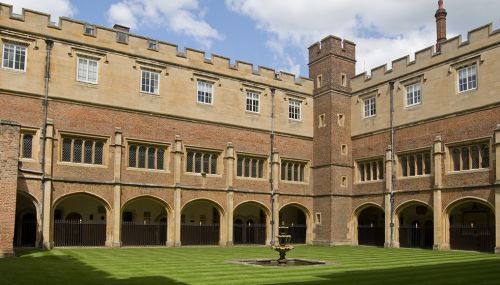Rich resources of private schools give pupils advantage at A level, new research shows
News
7 November 2019

Pupils in private school sixth forms tend to get better A level results than similar pupils in state schools, according to a new study.
Researchers from the UCL Centre for Longitudinal Studies and the UCL Institute of Education analysed information on more than 5,800 people born in England in 1989-90 who are being followed by Next Steps. They were able to draw on linked data from the National Pupil Database to look at subject choice at A level and A level attainment. To examine the effect of private school attendance on pupils’ A level success, the study considered prior academic achievement at GCSE level and family background to compare similar pupils enrolled in private and state schools.
The findings revealed that going to a private school was associated with an 8 percentage point rise up the overall A level rankings – equivalent to a pupil gaining A level grades AAA compared to AAB. Pupils in private schools also did better at ‘facilitating’ A level subjects, such as maths, history and biology, which are known to be favoured by high-status universities. They were placed eleven percentage points higher in the A level rankings for elite universities’ preferred subjects – equivalent to a pupil gaining A level grades AAA compared to ABB. Pupils at private schools studied 27 per cent more facilitating subjects, compared to those in state schools.
The study found no significant variation between private and state school sixth-formers in the total number of A levels taken. However, private school students took fewer subjects regarded as ‘unsuitable’ for elite universities, compared to those taken by state school pupils. Around 15 per cent of pupils taking A levels attended a private school.
In terms of progression to university, private school pupils were 6 percentage points more likely than state school pupils to progress to undergraduate study at any institution. However, they were no more likely to attend an elite university once the subjects taken at A level and A level attainment was taken into account.
The researchers explained that ‘vastly superior’ resources could have an impact on pupil attainment. The resources spent on private school pupils are roughly three times the state school average. In addition, the small pupil-teacher ratios in private school are around half that of state-funded schools.
“This is the first known study into the current performance gap in upper secondary education in England and our study provides further evidence on the links between private schooling, subject choice and university progression. Overall, we have a picture of cumulative advantage from Britain’s private education,” said lead author, Dr Morag Henderson.
“This is consistent with the vastly superior resource gap at each stage. Those who are privately educated are then set to profit beyond school with better university access and improved labour market rewards.”
Professor Francis Green, co-author, added: “These findings ought to put to bed the question of private schools’ educational advantage, in the context of debates about the need for reform, and the possible routes to reform.
“Both reformers and defenders of the status quo should start from the position that private schools do, on average, confer academic advantage, and policymakers should address the social exclusiveness of access to private schools in that light.”
Media coverage of this research
The Times – Private school pupils gain one A level grade over state rivals
Telegraph – Private school children can get up to two grades higher in A levels than state school peers, study finds
Mail – Private school education pays huge benefits as new research shows fee-paying pupils score two grades higher at A level than state students
Read the full paper
‘Private schooling, subject choice, upper secondary attainment and progression to university,’ by Morag Henderson, Jake Anders, Francis Green & Golo Henseke was published in the Oxford Review of Education in November 2019.
Back to news listing





